AACC Awards for 2008
The American Automatic Control Council presents a series of five awards each year to recognize excellence and achievement for technological, scientific, and educational contributions in the field of automatic control. These Awards, along with the Best Student Paper Award, will be presented at the 2008 ACC Awards Ceremony on Thursday 12 June, 2008.
Richard E. Bellman Control Heritage Award – Pravin Varaiya
The Richard E. Bellman Award is given for distinguished career contributions to the theory or application of automatic control. It is the highest recognition of professional achievement for US control systems engineers and scientists. The recipient must have spent a significant part of his/her career in the USA.
Citation: For pioneering contributions to Stochastic Control, Hybrid Systems and the Unification of theories of Control and Computation.
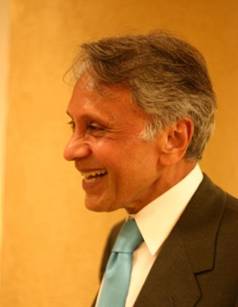 Pravin Varaiya is Nortel Networks Distinguished Professor in the
Department of Electrical Engineering and Computer Sciences at the University of California, Berkeley. From 1975 to 1992 he was also Professor of
Economics at Berkeley. During 1994-1997 he was Director of
California PATH, a multi-university research program concerned with the
development and use of technology to help solve California’s transportation problems. His
current research is concerned with sensor networks, transportation, and hybrid systems. His
earlier research dealt with stochastic control, communication networks, discrete event and large scale systems.
Pravin Varaiya is Nortel Networks Distinguished Professor in the
Department of Electrical Engineering and Computer Sciences at the University of California, Berkeley. From 1975 to 1992 he was also Professor of
Economics at Berkeley. During 1994-1997 he was Director of
California PATH, a multi-university research program concerned with the
development and use of technology to help solve California’s transportation problems. His
current research is concerned with sensor networks, transportation, and hybrid systems. His
earlier research dealt with stochastic control, communication networks, discrete event and large scale systems.
Varaiya has held a Guggenheim Fellowship and a Miller Research Professorship. He has received two Honorary Doctorates, and the Field Medal and Bode Prize of the IEEE Control Systems Society. He is a Fellow of IEEE, a member of the National Academy of Engineering, and a Fellow of the American Academy of Arts and Science. He is on the editorial board of Transportation Research--C. He has co-authored three books and 300 technical papers. The second edition of High-Performance Communication Networks (with Jean Walrand) was published by Morgan-Kaufmann in 2000. “Structure and Interpretation of Signals and Systems” (with Edward Lee) was published in 2003 by Addison-Wesley.
Control Engineering Practice Award – Babatunde A. Ogunnaike
The Control Engineering Practice Award is given to one individual or one team to be selected from those nominated for a significant contribution to the advancement of control practice. The primary criterion for selection will be for the application and implementation of innovative control concepts, methodology, and technology, for the planning, design, manufacture, and operation of control systems. Achievement and usefulness will be evidenced by the benefit to society and by the degree of acceptance by those who use control as a tool. The work on which the nomination is based must have been performed while the nominated individual or at least one member of the team was a resident of the USA.
Citation: For pioneering the application and implementation of model predictive control, nonlinear state estimation, nonlinear control, and product control to polymer and granulation processes.
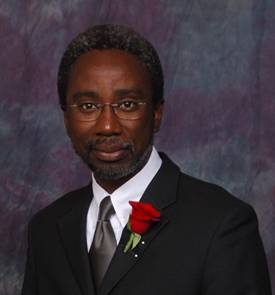 Babatunde A. (“Tunde”) Ogunnaike received the
B.Sc. degree (with First Class Honors) in Chemical Engineering from the
University of Lagos, Nigeria, in 1976; the M.S. degree, in Statistics from the University
of Wisconsin–Madison in 1981; and the
Ph.D. degree in Chemical Engineering also from the University of Wisconsin-Madison
in 1981. From 1981 to 1982, he was a Research Engineer with the Process Control
group of the Shell Development Corporation in Houston, Texas; and from 1982 to 1988, he was a professor at the University
of Lagos with joint
appointments in the Chemical Engineering and the Statistics Departments. He
joined the Advanced Control and Optimization group of DuPont Central Science
and Engineering in 1989, and was, from 1995 until September 2002, a Research
Fellow in DuPont Chemical Sciences and Engineering. An adjunct professor in the
Chemical Engineering Department of the University of Delaware since 1989, he
joined the faculty as a full professor in September 2002 and was named the
William L. Friend professor of Chemical Engineering in Jan 2004. He is the author or co-author of three books
including a widely used textbook, Process Dynamics, Modeling and Control, published in 1994 by Oxford University Press; he is also an Associate Editor of
the journal Industrial and Engineering Chemistry Research.
Babatunde A. (“Tunde”) Ogunnaike received the
B.Sc. degree (with First Class Honors) in Chemical Engineering from the
University of Lagos, Nigeria, in 1976; the M.S. degree, in Statistics from the University
of Wisconsin–Madison in 1981; and the
Ph.D. degree in Chemical Engineering also from the University of Wisconsin-Madison
in 1981. From 1981 to 1982, he was a Research Engineer with the Process Control
group of the Shell Development Corporation in Houston, Texas; and from 1982 to 1988, he was a professor at the University
of Lagos with joint
appointments in the Chemical Engineering and the Statistics Departments. He
joined the Advanced Control and Optimization group of DuPont Central Science
and Engineering in 1989, and was, from 1995 until September 2002, a Research
Fellow in DuPont Chemical Sciences and Engineering. An adjunct professor in the
Chemical Engineering Department of the University of Delaware since 1989, he
joined the faculty as a full professor in September 2002 and was named the
William L. Friend professor of Chemical Engineering in Jan 2004. He is the author or co-author of three books
including a widely used textbook, Process Dynamics, Modeling and Control, published in 1994 by Oxford University Press; he is also an Associate Editor of
the journal Industrial and Engineering Chemistry Research.
Dr. Ogunnaike's research interests include modeling and control of industrial processes (polymer reactors, extruders, distillation columns); the application of process analytical technology for control of pharmaceutical processes; identification and control of nonlinear systems; the interaction of process design and process operability; applied statistics; biological control systems; and systems biology with application to neuronal responses and cancer. He is the recipient of the American Institute of Chemical Engineers 1998 CAST Computing Practice Award, the 2004 University of Delaware’s College of Engineering Excellence in Teaching award, and ISA’s 2007 Eckman Award.
Donald P. Eckman Award – Asu Ozdaglar
The Donald P. Eckman Award recognizes an outstanding young engineer in the field of automatic control. The recipient must be younger than 35 years on January 1 of the year of the award. Contributions may be technical or scientific publications, theses, patents, inventions, or combinations of the above in the field of automatic control made while the recipient was a resident of the USA.
Citation: For contributions to optimization theory, game theory and its applications to congested markets, and learning in large networks with applications to human and social networks.
 Asu Ozdaglar received the B.S. degree in electrical engineering
from the Middle East Technical University, Ankara, Turkey, in 1996, and the S.M. and the Ph.D. degrees in electrical engineering and
computer science from the Massachusetts Institute of Technology, Cambridge, in 1998 and
2003, respectively. Since 2003, she has been a member of the faculty of the
Electrical Engineering and Computer Science Department at the Massachusetts
Institute of Technology (MIT), where she is currently the Class of 1943 Career
Development Associate Professor. She is also a member of the Laboratory for Information
and Decision Systems (LIDS) and the Operations Research Center (ORC) at
MIT.
Asu Ozdaglar received the B.S. degree in electrical engineering
from the Middle East Technical University, Ankara, Turkey, in 1996, and the S.M. and the Ph.D. degrees in electrical engineering and
computer science from the Massachusetts Institute of Technology, Cambridge, in 1998 and
2003, respectively. Since 2003, she has been a member of the faculty of the
Electrical Engineering and Computer Science Department at the Massachusetts
Institute of Technology (MIT), where she is currently the Class of 1943 Career
Development Associate Professor. She is also a member of the Laboratory for Information
and Decision Systems (LIDS) and the Operations Research Center (ORC) at
MIT.
Her research interests include optimization theory (with emphasis on nonlinear programming, convex analysis and nonconvex optimization), game theory, network economics, distributed optimization methods, and network optimization and control. She is the co-author (with Dimitri P. Bertsekas and Angelia Nedic) of the book entitled “Convex Analysis and Optimization” (Athena Scientific, 2003). She is the recipient of a Microsoft fellowship, the MIT Graduate Student Council Teaching award, and the NSF Career award.
The John R. Ragazzini Award – Stephen Yurkovich
The John R. Ragazzini Award is given to recognize outstanding contributions to automatic control education in any form. These contributions can be from any source and in any media, e.g. electronic or print publications, courses,etc.
Citation: For leadership in control education through curriculum and laboratory development, for contributions in continuing education for control engineers in industry, and for promotion of student involvement in engineering professionalism.
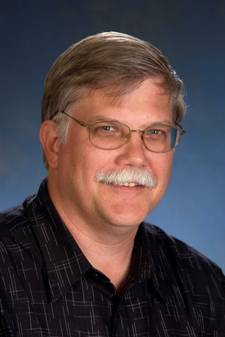 Stephen
Yurkovich is a Fellow of the IEEE, and holds a joint appointment as Professor of Electrical and Computer Engineering, and
Mechanical Engineering at The Ohio State University, where he served as Acting
Director of the Center for Automotive Research in 2007. In 2000 he was awarded
the IEEE Control Systems Society Distinguished Member Award, and an IEEE Third
Millennium Medal. Professor Yurkovich has won
numerous awards at Ohio
State University
for his research focused on the theory and applications of control systems, in
numerous application areas. He has been an author on more than 180 technical
publications in journals, edited volumes, and conference proceedings, and has
authored and co-authored the books Control Laboratory (Kendall/Hunt, 1992), Fuzzy Control (1998, Addison-Wesley-Longman), and Control Systems Technology
Lab (Pearson Custom Publishing, 2004).
Stephen
Yurkovich is a Fellow of the IEEE, and holds a joint appointment as Professor of Electrical and Computer Engineering, and
Mechanical Engineering at The Ohio State University, where he served as Acting
Director of the Center for Automotive Research in 2007. In 2000 he was awarded
the IEEE Control Systems Society Distinguished Member Award, and an IEEE Third
Millennium Medal. Professor Yurkovich has won
numerous awards at Ohio
State University
for his research focused on the theory and applications of control systems, in
numerous application areas. He has been an author on more than 180 technical
publications in journals, edited volumes, and conference proceedings, and has
authored and co-authored the books Control Laboratory (Kendall/Hunt, 1992), Fuzzy Control (1998, Addison-Wesley-Longman), and Control Systems Technology
Lab (Pearson Custom Publishing, 2004).
In addition to research, Professor Yurkovich’s accomplishments span many facets of control education and education in general. As a direct result of working with many students he has mentored over his career, he has packaged and transferred knowledge on research and technology into public forums, into classroom instruction in the US and abroad, and to engineers in industry. He has taught in the area of control systems for more than 20 years, including courses and workshops abroad in Mexico, Costa Rica and Belgium, and has delivered various invited lectures on his research as well as on education-related topics. He has secured funding in the area of control education from the National Science Foundation and industry, and has undertaken significant curriculum development projects to bring research into the classroom. He has promoted control education in public venues through service in the IEEE Control Systems Society and through his editorial work in IEEE Control Systems Magazine where he initiated and led several education-related activities and special issues. He has been active in continuing education and distance education for industry for more than ten years while at Ohio State, defining and developing several Certificate programs with graduate courses in automotive systems, delivering a wide variety of short courses in control related fields, and developing focused control-related courses for Ohio State students as well as partners in industry. In 2007 he was awarded the General Motors Outstanding Distance Learning Faculty Award. He has also been a leader at Ohio State and in central Ohio in outreach programs from the university to high school students in promotion of engineering as a profession, in his position as Director of the Honda-OSU Partnership program.
O. Hugo Schuck Best Paper Award
The O. Hugo Schuck Awards are given to recognize the best two papers presented at the previous ACC. One award is for a paper emphasizing contributions to theory and the other for a paper emphasizing significant or innovative applications. Criteria for selection include the quality of the written and oral presentation, the technical contribution, timeliness, and practicality.
The winning paper for the O. Hugo Schuck Award for Theory:
Nader Motee, Ali Jadbabaie, “Optimal Control of Spatially Distributed Systems”, 2007 American Control Conference, New York, USA, pages 778-783.
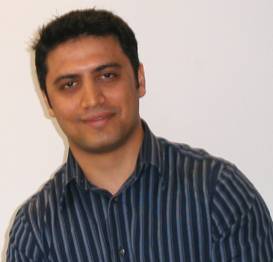 Nader Motee received a bachelor degree in electrical engineering
from Sharif University of Technology, Tehran, Iran, in 2000. He received a Masters degree in mechanical engineering from the Louisiana State
University, Baton
Rouge, in 2003, and Masters and Ph.D. degree in electrical and
systems engineering from the University
of Pennsylvania, Philadelphia, in September 2006 and December
2007, respectively. He is currently a postdoctoral researcher at the General
Robotics, Automation, Sensing, and Perception (GRASP) Laboratory at the University of Pennsylvania. His current research
interests include the areas of distributed control systems, distributed
optimization, and nonlinear control systems, and their applications to robotics
and unmanned aerial vehicles. He was the recipient of the Student Best Paper
Award at the American Control Conference in 2007, and finalists for the Student
Best Paper Award at the American Control Conference in 2006 and the IEEE Region
8 Student Paper Contest in 2000.
Nader Motee received a bachelor degree in electrical engineering
from Sharif University of Technology, Tehran, Iran, in 2000. He received a Masters degree in mechanical engineering from the Louisiana State
University, Baton
Rouge, in 2003, and Masters and Ph.D. degree in electrical and
systems engineering from the University
of Pennsylvania, Philadelphia, in September 2006 and December
2007, respectively. He is currently a postdoctoral researcher at the General
Robotics, Automation, Sensing, and Perception (GRASP) Laboratory at the University of Pennsylvania. His current research
interests include the areas of distributed control systems, distributed
optimization, and nonlinear control systems, and their applications to robotics
and unmanned aerial vehicles. He was the recipient of the Student Best Paper
Award at the American Control Conference in 2007, and finalists for the Student
Best Paper Award at the American Control Conference in 2006 and the IEEE Region
8 Student Paper Contest in 2000.
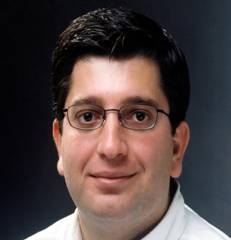 Ali Jadbabaie got
his Bachelors degree with high honors from Sharif University of Technology in Tehran, Iran in 1995. He received a Masters degree in Electrical
and Computer Engineering from the University
of New Mexico, Albuquerque in 1997 and a Ph.D. degree in
Control and Dynamical Systems from California Institute of Technology (Caltech) in June 2001. From July 2001-July 2002 he was a postdoctoral associate at the
department of Electrical Engineering at Yale University. Since July 2002 he has been an assistant professor in the department of
Electrical and Systems Engineering and GRASP
Laboratory at the University of Pennsylvania, Philadelphia. He is a recipient of an NSF Career Award, an ONR Young Investigator award, the
student best paper award (as advisor) in the American Control Conference, and
the George S. Axelby Outstanding Paper Award of the
IEEE Control Systems Society. His
research interests are on motion coordination of multi-agent systems, optimization and optimal control, as well as applications of algebraic topology
and computational geometry in deployment and design of sensor networks.
Ali Jadbabaie got
his Bachelors degree with high honors from Sharif University of Technology in Tehran, Iran in 1995. He received a Masters degree in Electrical
and Computer Engineering from the University
of New Mexico, Albuquerque in 1997 and a Ph.D. degree in
Control and Dynamical Systems from California Institute of Technology (Caltech) in June 2001. From July 2001-July 2002 he was a postdoctoral associate at the
department of Electrical Engineering at Yale University. Since July 2002 he has been an assistant professor in the department of
Electrical and Systems Engineering and GRASP
Laboratory at the University of Pennsylvania, Philadelphia. He is a recipient of an NSF Career Award, an ONR Young Investigator award, the
student best paper award (as advisor) in the American Control Conference, and
the George S. Axelby Outstanding Paper Award of the
IEEE Control Systems Society. His
research interests are on motion coordination of multi-agent systems, optimization and optimal control, as well as applications of algebraic topology
and computational geometry in deployment and design of sensor networks.
The winning paper for the O. Hugo Schuck Award for Practice:
Lin-Shien Fong, Stevan Dubljevic, “Pacing Real-Time Spatiotemporal Control of Cardiac Alternans”, 2007 American Control Conference, New York, USA, pages 600-606.
 Shien-Fong Lin
received his PhD degree in Biomedical Engineering from Northwestern
University, Evanston, Illinois. He joined the Living State Physics Group at Vanderbilt University in 1992 as an assistant
professor to study neural function and cardiac activation. While at Vanderbilt, he pioneered the optical
mapping technique to measure electrical excitation and propagation in cardiac
tissue. He won the first prize in the
Young Investigator Competition in North American Society of Pacing and
Electrophysiology in 1998. In 2001, he
joined the Electrophysiology Research Group in Cedars-Sinai
Medical Center
in Los Angeles, and was appointed as an Associate Professor at David Geffen School of Medicine, UCLA. In 2007, he became a Professor of Medicine in Indiana University School
of Medicine. His research interests include cardiac electrophysiology, control
of arrhythmias, biomedical optics and biomedical image processing.
Shien-Fong Lin
received his PhD degree in Biomedical Engineering from Northwestern
University, Evanston, Illinois. He joined the Living State Physics Group at Vanderbilt University in 1992 as an assistant
professor to study neural function and cardiac activation. While at Vanderbilt, he pioneered the optical
mapping technique to measure electrical excitation and propagation in cardiac
tissue. He won the first prize in the
Young Investigator Competition in North American Society of Pacing and
Electrophysiology in 1998. In 2001, he
joined the Electrophysiology Research Group in Cedars-Sinai
Medical Center
in Los Angeles, and was appointed as an Associate Professor at David Geffen School of Medicine, UCLA. In 2007, he became a Professor of Medicine in Indiana University School
of Medicine. His research interests include cardiac electrophysiology, control
of arrhythmias, biomedical optics and biomedical image processing.
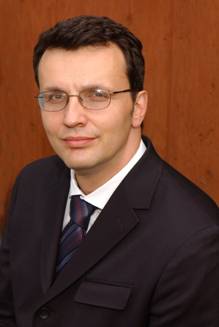
Stevan S. Dubljevic received his Ph.D. from the UCLA Henry Samueli School of Engineering and Applied Science in 2005. He holds a M.S. degree in Chemical Engineering from Texas A&M and B.Sc. from Belgrade University (Serbia), which he received in 2001 and 1997, respectively. Currently, Dr. Dubljevic is an independent post-doctoral researcher at the Cardiology Division of the UCLA David Geffen School of Medicine, and is also associated with the UCLA Chemical and Biomolecular Engineering Department. He is the 2007-2009 recipient of the American Heart Association (AHA) Western States Affiliate Postdoctoral Grant Award, which is given for innovative and independent research efforts. His paper was chosen for the Computing and Systems Technology Division Plenary Session at the AIChE Annual Meeting in Austin, Texas (2004). He was named the winner of the Best Presentation in Session Award at the American Control Conference in Portland, Oregon (2005). He also received Doctoral Graduate Fellowship at UCLA, 2002-2005.
His research interests include systems engineering, with emphasis on model predictive control of distributed parameter systems, dynamics and optimization, process operations, computational modeling and simulation of biological systems-(cardiac electrophysiological systems) and biomedical engineering.
2009 AACC Awards – Nominations due November 1, 2008
Nominations for the five AACC awards for 2009 are now being solicited. Each awardee will be presented a certificate and an honorarium at the 2009 ACC Awards Ceremony in St. Louis, Missouri. Nominations should be prepared and submitted as per the AACC instructions outlined at the website http://a2c2.org/awards. For more information, please contact Dr. Pradeep Misra (AACC Secretary).The completed nomination package should be sent to:
Professor Pradeep Misra
Department of Electrical engineering
Wright State University
3640 Colonel Glenn Highway
Dayton, OH 45426
Phone: 937-775-5037
FAX: 937-775-3936
Email: pmisra@cs.wright.edu